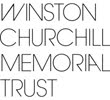Sunday, 19 September 2010
Rutgers University – New Brunswick, New Jersey
New Brunswick could not have been more different. Rutgers University was founded in 1766, 10 years before the USA, and has a total of 35,000 students enrolled. And of those 35,000, there are currently 19 who are in recovery from drink and drug problems living in a ‘sober dorm’: a large modern wooden house accommodating a maximum of 25 in dormitories of up to 4 students. Rutgers was the fist university in the country to offer students in recovery a ‘fulfilling college residential experience free from the distractions of drugs and alcohol’ but now the university is one of 15 colleges and 30 high schools nationally that make up the Association of Recovery Schools (ARS).
Rutgers takes student welfare seriously and the prestigious Counseling and Psychological Services building houses 40 counsellors, of which 4 are addiction counsellors, in addition to 5 full time psychiatrists who give only 30 minute sessions as the demand is so high. I wonder what psychological services are available to a similar sized university anywhere else in the world?
The students in recovery at Rutgers have generally ‘flunked’ another course somewhere and have applied specifically to Rutgers because of the security of the ‘sober dorm facility’. They have to be clean and sober for 90 days before being interviewed for admission; and if admitted, have to attend two AA/NA meetings a week, fully involve themselves in the AA/NA sponsorship relationship and have to meet with their counsellor at least once a fortnight for 16 weeks; all this on top of their university work.
When I visited and talked with the students there was a positive feel to the house and a determination amongst them to stick it out and achieve their precious qualification, but they spoke wistfully of their ‘difference’ that separates them from the main student body that can drink and drug without dire consequence. Despite this regret, they certainly appreciate living with others in the same situation, and that solidarity gave me a strong sense that these ‘guys’ were well on the way to getting their academic education, and a lifelong understanding of how to manage their addiction at the same time. And all before their 25th birthday!
Nearly all of the students I talked to were happy to tell me that they were drinking at weekends when they were 12 or 13 and that they were smoking dope shortly after that. All of them had been in some kind of trouble (home, school, police, hospital) by the time they were 18 and in most aspects of life seemed to be ‘early starters’. Fortunately, (is it just fortune?) the right sequence of interventions have taken place, and all things being equal, I left a bunch of survivors and achievers in recovery as I took the train back to New York.
Subscribe to:
Post Comments (Atom)




No comments:
Post a Comment